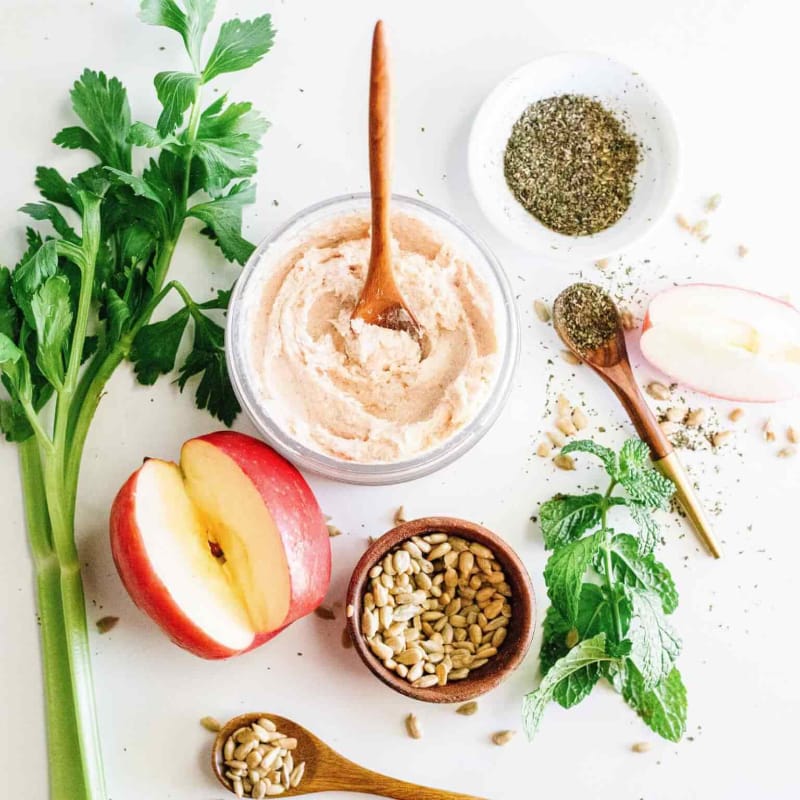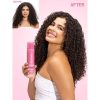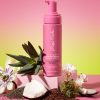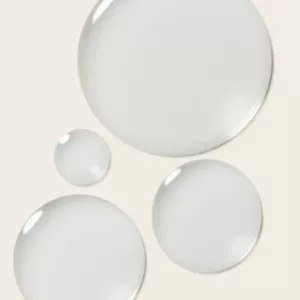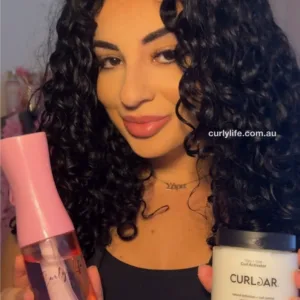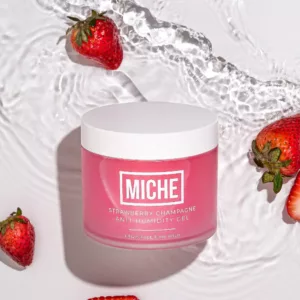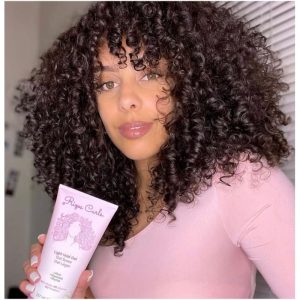Why does frizz happen? What are the top-notch products for taming frizz? How can I effectively control frizz? These questions are likely to resonate with anyone sporting curly hair. If you’ve found yourself on a quest for answers, you’re in the right place. Addressing frizz is an ongoing journey for those with curly locks, but it’s essential to understand that frizz is a natural aspect of curly hair – one that should be embraced rather than fought against.
While a certain level of frizz is par for the course for curly hair (who doesn’t appreciate a bit of functional frizz for added volume?), managing persistent frizz can be challenging, prompting some to resort to heat styling and chemical treatments.
Thankfully, effective frizz management doesn’t necessarily involve these drastic measures. It’s all about discovering the right strategies for your hair’s unique needs. Whether your hair requires more moisture or a deep cleanse, here are valuable tips to help you maintain your curls and minimise frizz.
Understanding the Causes of Frizz
Weather’s Role:
Environmental conditions significantly impact curly hair. A perfect hair day can quickly transform into a frizzy debacle when exposed to rain or humid weather. This occurs due to excess atmospheric moisture causing hair cuticles to swell. Wind can also contribute by roughening up hair. Preventing weather-induced frizz involves thorough hydration to reduce moisture absorption and safeguarding hair from the elements.
Moisture Deficiency and Frizz:
Among the primary culprits of frizzy curly hair is inadequate moisture. When curly hair lacks hydration, it seeks moisture from the environment, resulting in frizz. Lorraine Massey, author of “Curly Girl: The Handbook,” aptly notes that “frizz is just a curl waiting to happen,” highlighting moisture’s pivotal role. Read on for tips on effectively moisturising your curls.
Build-up Woes:
The choice of styling products, co-washing over low-pooing, or possessing fine hair can leave your curls susceptible to product build-up. This accumulation, stemming from factors like environmental impurities, certain hair products, or even water quality, triggers what can be described as “angry frizz.” Combatting this requires occasional clarifying washes.
The Protein Factor:
Curly hair can also become over-moisturised, leading to “hygral fatigue.” This condition renders hair excessively soft, lacking definition, and prone to wet frizz. This can escalate to a soft, mushy frizz when dry. It’s vital to ensure your hair is adequately hydrated before considering protein, as symptoms of protein deficiency and moisture deficiency can overlap.
Protein Overload:
A protein overload results in “angry frizz” – dry, unruly frizz that craves moisture. Overloading on protein might stem from excessive protein treatments or consistent use of protein-rich styling products. Given varying sensitivities to protein, understanding your hair’s needs is paramount.
Caring for Frizzy Curly Hair
Ditch the Terry Towel:
Regular terry towels strip hair of moisture and disrupt the hair cuticle, leading to dry, frizzy curls. Post-wash, opt for a gentler option like the Bouclème Curl Towel to remove excess water without causing harm.
Hydration is Key:
Addressing frizz entails addressing dryness. Curly hair’s inherent dryness mandates extra moisture. Achieve well-hydrated curls through suitable products and techniques like the “Squish to Condish” method.
Know Your Hair:
Diagnosing the root cause of your frizz is best achieved through understanding your hair. Experiment with products, ingredients, and styling approaches to decipher your hair’s preferences. Trial and error is a reliable method to uncover what works best for your unique curls.
Protect Your Tresses:
Certain frizz types can be averted through proactive protection. Wearing a hat or opting for an up-do during adverse weather conditions can prevent frizz. Likewise, investing in a silk or satin pillowcase can help retain overnight moisture.
Top Products for Frizz Management
Deep Conditioning:
For optimal hydration, consider treatments like the Bouclème Intensive Moisture Treatment. Applying this for an hour can work wonders for your curls.
Moisturising Cream:
Enhance post-wash moisture with the Bouclème Curl Cream. Well-hydrated curls are happy curls.
Gel for Control:
Hair gels such as the Bouclème Curl Defining Gel effectively lock in moisture and tame flyaways.
Tailored Usage Tip: If product build-up is a concern or if your hair is amply moisturised, you can forego the cream and apply the gel individually (or leave a bit of conditioner prior to applying the gel).
With insights into the causes of frizz and practical strategies to manage it, you’re now armed with the knowledge to enrich your curly hair journey. While these tips and tricks prove invaluable, remember that frizz is an intrinsic element of curly hair. Complete eradication of frizz is a lofty goal. Instead, focus on nurturing your hair’s health while embracing the beauty of your curls, frizz included.

